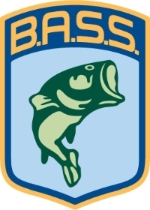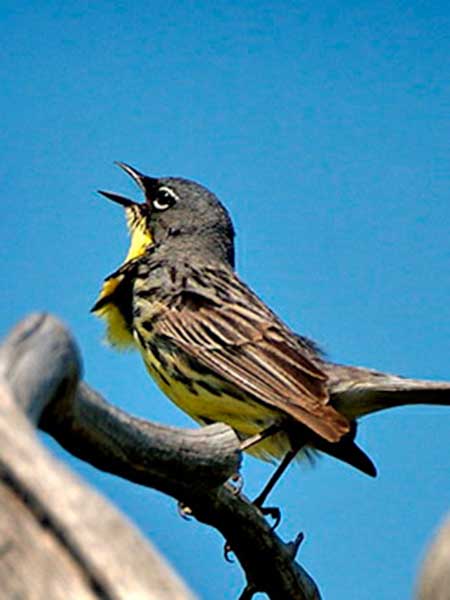- Details
 B.A.S.S.B.A.S.S. LLC has unveiled four unique events for 2014, including one to be held in Michigan.
B.A.S.S.B.A.S.S. LLC has unveiled four unique events for 2014, including one to be held in Michigan.
Together, the events offer new opportunities for every type of angler, from weekenders and high school students to professionals.
We always strive to provide novel ways anglers and fans can enjoy the sport of bass fishing, and new avenues through which our sponsor partners can reach their markets, said Bruce Akin, CEO of B.A.S.S.
Two of the 2014 events reach the fast-growing market of high school anglers, whether they simply love the sport or have an eye on turning pro. High school anglers are the future of our sport, Akin said. Another event will result in a weekend angler qualifying for the 2015 Bassmaster Classic the dream of most any angler. The fourth a Bassmaster Elite Series super-event is sure to be a fan favorite.
- Details
The Michigan DNR informs anglers about new viral hemorrhagic septicemia (VHS) regulations that went into effect Jan. 9.
The changes result in simpler regulations for anglers who purchase and use minnows as bait by removing the retail sales receipt provision. Anglers will now no longer be required to possess their bait receipts while fishing and retail minnow sellers will no longer be required to provide anglers with detailed receipts for minnows.
VHS is a serious viral disease that has spread into the Great Lakes region and caused large-scale fish kills. VHS was first identified in the Great Lakes in 2005 and has caused mortalities in a number of fish species in the Michigan waters of Lake Huron, Lake St. Clair, St. Clair and Detroit rivers, Lake Erie, and inland in Budd Lake near Harrison and Base Line Lake near Pinckney. It has also been found in Lake Michigan waters of Wisconsin. The DNR actively monitors for VHS throughout the year and as other areas are identified positive for VHS, they will be listed online at www.michigan.gov/vhs.
- Details
(Provided by Michigan DNR)
 Michigan's Nongame Fund provides many benefits.This is the time of year when charities and other nonprofit organizations remind citizens that they can lower their tax bills by donating to these organizations. The Department of Natural Resources can say the same: contributions to Michigans Nongame Fish and Wildlife Fund are tax-deductible and the fund is what provides state officials with the money to manage the 80 percent of wildlife species in this state that are not hunted or trapped. (Game species are managed with revenue from license sales.)
Michigan's Nongame Fund provides many benefits.This is the time of year when charities and other nonprofit organizations remind citizens that they can lower their tax bills by donating to these organizations. The Department of Natural Resources can say the same: contributions to Michigans Nongame Fish and Wildlife Fund are tax-deductible and the fund is what provides state officials with the money to manage the 80 percent of wildlife species in this state that are not hunted or trapped. (Game species are managed with revenue from license sales.)
Celebrating its 30th anniversary this year, the Nongame Fish and Wildlife Fund has changed in several ways since its inception in 1983, though the three main goals remain the same:
- To restore populations of endangered species;
- To maintain healthy populations of animals and plants; and
- To promote through education and first-hand opportunities to experience wildlife appreciation for and awareness of Michigans diverse wildlife.
When it was first created, the nongame fund raised money through a check-off on the state income tax return. The check-off was discontinued in the 1990s when the fund reached $6 million. The fund continues to generate revenue from interest on the balance, by voluntary contributions, and, of course, the purchase of Conserve Wildlife Habitat license plates (Look for the Loon!).
- Details
 Coyote WorkshopD&R Sports Center will host a free Coyote Hunting Workshop at 10 a.m. and 1 p.m. on Jan. 4.
Coyote WorkshopD&R Sports Center will host a free Coyote Hunting Workshop at 10 a.m. and 1 p.m. on Jan. 4.
Coyote hunting expert, Todd Sullivan, and creator of Dogbreath Coyote Calls, will present both a morning and afternoon seminar called Shoot More Coyotes. The seminar focuses on techniques and tricks that lead to consistent success hunting coyotes in Michigan.
- Details
Michigan DNR officials have confirmed a cougar was illegally killed last week in the Upper Peninsulas Schoolcraft County.
Acting on a tip that a cougar had been illegally killed at a hunting camp in northeast Schoolcraft County, DNR conservation officers and Special Investigations Unit detectives were able to successfully recover evidence and identify and apprehend two suspects from Bay County.
Upon completion of the DNRs investigation, the case will be turned over to the Schoolcraft County Prosecuting Attorney with warrant requests for charges. The state penalty for illegally killing a cougar, classified as an endangered species in Michigan, is up to 90 days in jail and fines and restitution of up to $2,500.


